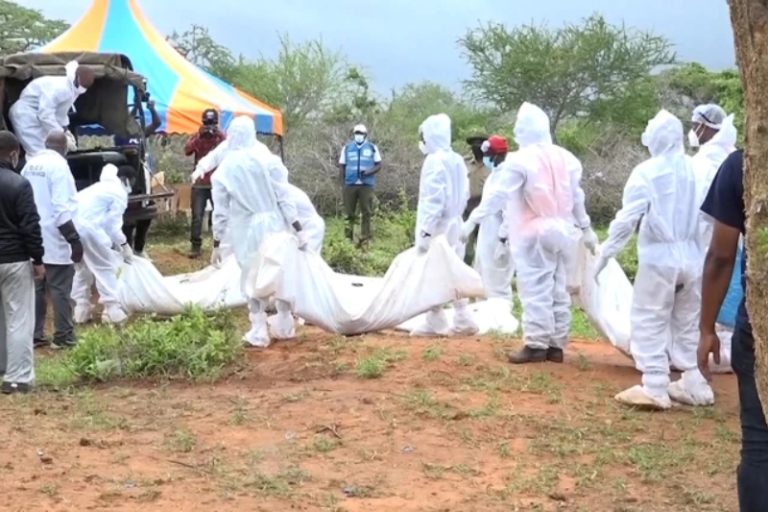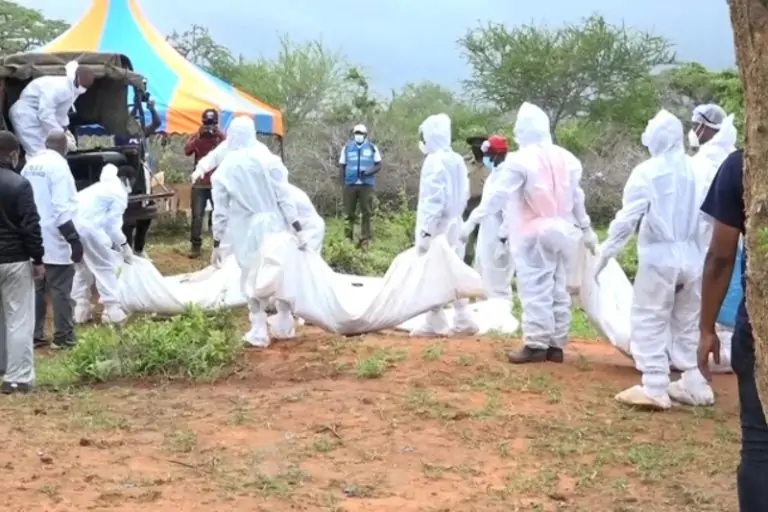

kenya begins releasing bodies from the cult mass grave
In a remote forest in eastern Kenya, authorities unearthed mass graves containing the bodies of individuals who died under the influence of self-proclaimed Pastor Paul Nthenge Mackenzie. The cult leader purportedly preached an apocalyptic message, urging his followers to fast in anticipation of Jesus’ imminent return. This tragic revelation has shocked the nation and raised questions about the influence of fringe religious groups.
Due to the advanced state of decomposition of many bodies, identifying the victims has been a laborious process. With the help of DNA samples from relatives, authorities have managed to identify some of the deceased. However, the sheer volume of cases and limited resources have contributed to delays in the identification and release of remains. The emotional toll on grieving families has been immense, with psychological counselling provided by organisations like the International Committee of the Red Cross.
The delay in releasing the bodies has drawn criticism from the Kenya National Commission on Human Rights, highlighting systemic challenges in handling such cases. Moreover, the financial burden of transporting the remains for burial has placed additional strain on bereaved families, some of whom are appealing for assistance. As legal proceedings against Mackenzie and other cult members unfold, the nation grapples with the aftermath of this tragic chapter in its history.
The tragedy surrounding the cult’s activities has left a deep scar on the affected communities and the nation as a whole. The cult’s grip has left families with the painful task of laying their loved ones to rest. age of time, the wounds remain fresh, and the grief is palpable as relatives confront the reality of their loss. The release of the bodies marks a sombre moment of closure for some, while for others, it reopens old wounds and underscores the need for justice and accountability.
Legal proceedings against Pastor Paul Nthenge Mackenzie and his associates represent a crucial step towards justice for the victims and their families. Charged with serious crimes, including the murder of children, the defendants face the full weight of the law as they plead their innocence. The trial provides the nation with a chance to confront the sinister influence of cults and hold those accountable for their actions. As the judicial process unfolds, the focus remains on providing closure to grieving families and preventing similar tragedies in the future.
The harrowing ordeal surrounding the cult’s activities serves as a sobering reminder of the dangers posed by extremist ideologies and charismatic leaders. It underscores the importance of vigilance in safeguarding vulnerable communities against manipulation and exploitation. Moving forward, there is a pressing need for enhanced awareness, education, and support networks to prevent the emergence of similar cults and mitigate their impact on society. By learning from this tragedy, Kenya can strive to create a safer and more resilient society for all of its citizens.
South African President Cyril Ramaphosa defended his nation against claims of white discrimination made by tech magnate Elon Musk. After…
Hilton launched Signia by Hilton for its first appearance in Egypt and Africa through its hotel expansions. These hotels at…
UNICEF reported that, nearly 2900 people died of cholera across Eastern and Southern African countries while children suffer most greatly…
Enza, based in the United Arab Emirates, obtained $6.75 million in initial investment funding from Algebra Ventures and Quona Capital.…
US Secretary of State Marco Rubio ordered South African Ambassador Ebrahim Rasool to leave America by March 21 because he…
Early 2025 ends with IPL fever in India and cricket fans receive good news of an international schedule full of…
This website uses cookies.